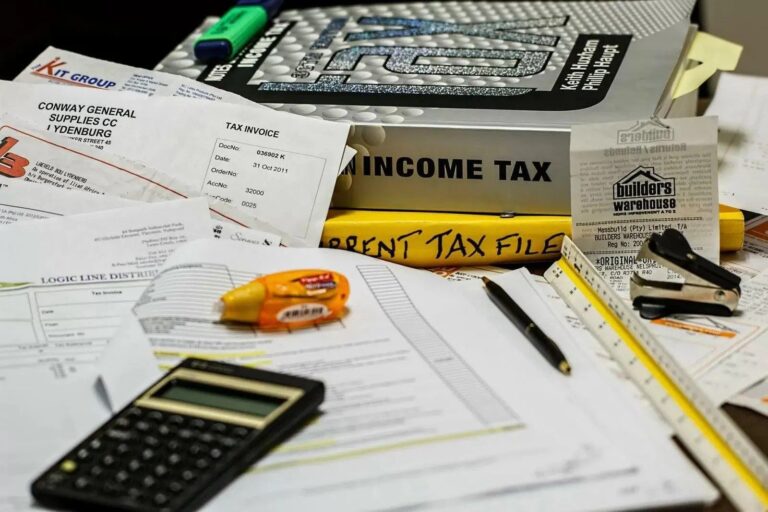Whether you are trading a property through a limited company or through individual trading, there are many aspects that one needs to be careful of.
To avoid any unnecessary hassle, we are going to delve into understanding what these circumstances are and help you properly identify what option fits you the best.
But before we understand the right option, we must understand when a transaction is considered a trade.
Understanding The Badges of Trade
To ascertain the character of the transactions, it is crucial to evaluate whether the transaction falls under the category of Trading or Investing.
The ‘badges of trade’ tests, employed by HMRC, serve as a means to distinguish between trading and investment activities.
Badges of Trade
HMRC employs a set of nine criteria, referred to as the ‘badges of trade,’ to assess whether an activity can be classified as a trading or investment activity.
Financial Arrangement
If an asset is purchased on a short-term loan which the taxpayer is unable to fund without selling the asset again, HMRC can successfully argue that the asset was purchased specifically with a view to selling it. Hence Trading.
Repetition/Frequency
If we do something once, never to be repeated again, it is unlikely that we would be treated as carrying on a trade. If, however, we keep doing it, it is more likely that we are trading.
Profit Motive
It is clear that having an intention to make a profit can indicate a trading activity, however by itself it is not enough.
Nature of Asset
We cannot pin a trading label onto a single one-off transaction simply because we cannot justify the fact that the particular asset was purchased for any other purpose than to resell it.
Changes to the Asset
There is the likelihood of the transaction being considered ‘Trading’ when the asset is made more marketable by carrying out any activity on the asset before selling it.
Connection with the existing Trade
It is unlikely to be considered as ‘Trading’ if the seller’s activity is not in any way connected with the main sale transaction. For example, if a tax consultant sells a car, it is unlikely that such a sale would be considered as trading as there is no link between selling cars and being a tax consultant.
Interval between Purchase and Sale
The length of time an asset is held is an important indicator of trade. The longer the period of ownership the greater the chance of it been seen as an investment rather than a trade.
Method of Acquisition
If it is inherited or gifted it is a good indication that a trade is not being carried out, although this is not always the case. An asset acquire at a market could indicate that it has either been purchased for a trade or an investment.
The way sale was carried out.
It is a pointer towards trade that the transactions are carried out in the same manner as those of an undisputed trader. If the asset was sold to raise the fund for emergency, that could be considered as being Investment rather than trade.
Tax on Trading as an Individual
Individuals who are involved in buying and selling with the aim of making a profit (E.g. acquiring the property with an intention of gaining profit quicky and has not acquired with an intension of holding it for a long term) is a trader.
The tax implication for an individual trader or a freelancer is different than for an individual investor.
The individual trader or a freelancer is subject to income tax and national insurance on the trading profit rather than Capital Gain Tax.
Income Tax for Individual Trader or Freelancer
Income tax applies to any income derived from trading activities. The income that is chargeable to tax is the trading profit computed after deducting all the expenses wholly and exclusively incurred in the course of trade.
Individuals are subject to the following tax rates after claiming the Personal Allowance of £12,570.

Income Tax
| Rate Bands | Threshold | Tax Rate |
|---|---|---|
| Basic | £1 – £37,770 | 20% |
| Higher | £37,701 – £125,140 | 40% |
| Additional | Above £125,140 | 45% |
National Insurance Contribution for Individual Trader or Freelancer
Individual Traders or Freelancers are considered as ‘Self-employed’. Individuals operating as self-employed are obliged to pay both Class 2 and Class 4 National Insurance.
For self-employed individuals with annual profits equal to or exceeding £12,570, you pay both Class 2 and Class 4 National Insurance at the following rate:
| Class | Rate for tax year 2023 to 2024 |
|---|---|
| Class 2 | £3.45 a week |
| Class 4 | 9% on profits between £12,570 and £50,270 2% on profits over £50,270 |
Note: The class 2 NIC is going to be abolished from April 2024. The class 4 self employed NICs is going to change from 9% to 8% from 6 April 2024.
Identifying as a Freelancer or Under Employment
An individual’s employment status, whether they are classified as employed or as a Freelancer (self-employed) is not discretionary. It is contingent upon the specific terms and conditions outlined in the relevant engagement.

Accurate determination of a worker’s status is crucial, as the taxation and National Insurance Contributions (NICs) treatment varies for employees and self-employed individuals.
Some of the factors determining the status are as follows:
Contractual Agreements
Freelancers often work on a project-by-project basis. Contracts specify deliverables, timelines, and payment terms for each project.
Employment is an ongoing, long-term relationship rather than project based.
Flexibility
Freelancers have more flexibility in setting their work hours. They can choose when and where to work, within the agreed-upon project deadlines.
Employees usually have set work hours and may be required to work at a specific location (office).
Benefits available.
Freelancers typically do not receive employee benefits such as health insurance, retirement plans, or paid time off.
Employees are eligible for various benefits, including health insurance, retirement plans, and paid time off.
Exclusivity
Freelancers often work with multiple clients simultaneously or over a period.
Employees may be restricted from working for competing companies during their employment.
Tools and Equipment
Freelancers typically use their own tools and equipment for the job. They are responsible for their workspace and resources.
Employers often provide the necessary tools and equipment for the job.
Taxation
Freelancers are usually responsible for their own taxes and do not have taxes withheld by clients.
Employers withhold taxes from employees’ pay checks and contribute to social security and other benefits.
Trading as a Corporate Structure
For a corporate structure, irrespective of the intension there is no difference between what we have previously discussed from the property point of view in our article on “Buying Property Through a Limited Company – The Pros and Cons”
Unlike income tax and National Insurance contribution, the trading profit is liable for Corporation Tax at 19% or 25% based on the turnover of the company.
Read our detail article on the new ” Corporation Tax Rate “.
Difference Between Trading in Individuals Name vs Corporate Entity
| Basic | Trading Individually | Trading via Corporate Entity |
|---|---|---|
| Appropriateness | Income level within the basic rate then it is appropriate to trade individually | Higher rate tax bracket then trade via Corporate Entity |
| Early Trade loss Relief | Where an individual incurs a trade loss in the tax year in which trade commenced or any of the next three tax years, relief for the loss may be claimed against general income of the three tax years preceding the loss-making year on a first-in-first-out basis. | Such relief is not available in case of a corporate structure |
| Compliance cost | Lesser Compliance Cost in comparison to Corporate Entity. | Limited companies must file annual accounts and corporation tax returns which may increase the cost. |
| Profit Extraction | Easy Profit Extraction | When a director decides to withdraw the company profits as dividends, the director would need to pay dividend tax on it. |
| Access to Tax Reliefs | No such variety of reliefs available to individual | Companies are provided with tax reliefs to encourage certain activities that individuals cannot enjoy. Some reliefs available to a company are R&D Relief, Super-deduction, special rate first-year capital allowances, Patent box etc. |
| Limited Liability | No safeguard of personal asset in case of default | Safeguard of personal asset in case of default by company |
We are dedicated to solve your queries.
Contact us for assistance at any stage of your journey.









